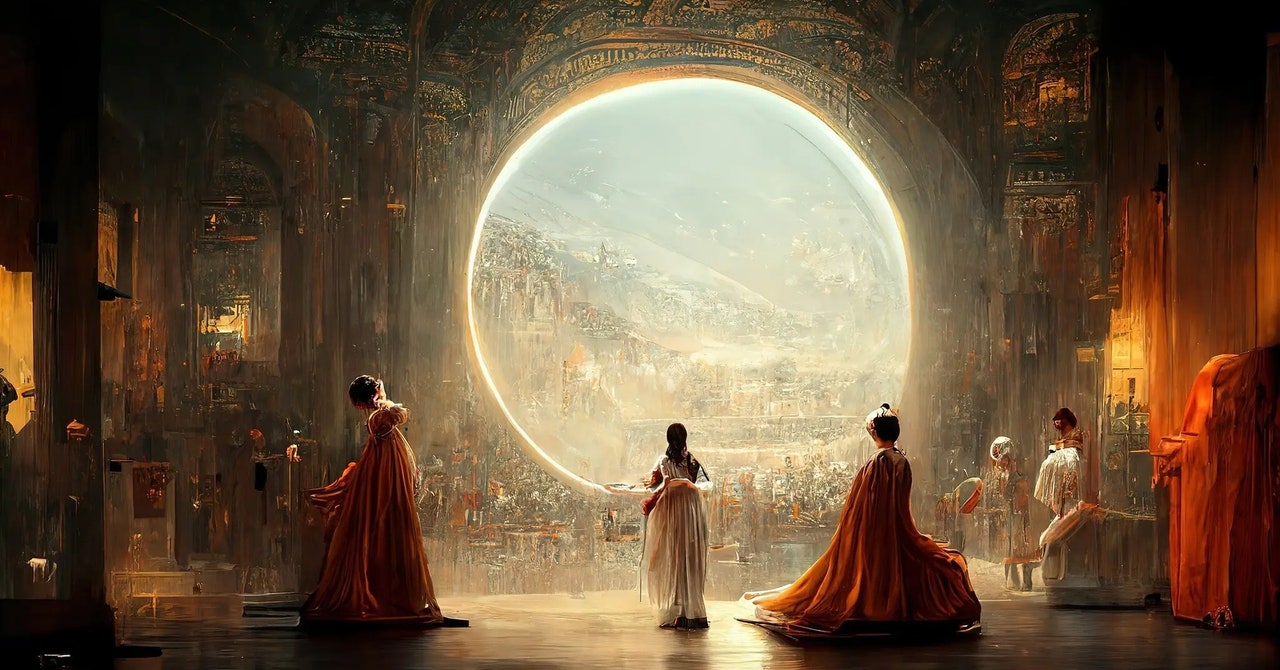- cross-posted to:
- [email protected]
- [email protected]
- [email protected]
- cross-posted to:
- [email protected]
- [email protected]
- [email protected]
Why This Award-Winning Piece of AI Art Can’t Be Copyrighted::Matthew Allen’s AI art won first prize at the Colorado State Fair. But the US government has ruled it can’t be copyrighted because it’s too much “machine” and not enough “human.”



This seems to follow a similar line of thought ( On Art In Context )
Yea, we’re well into DADA-ist territory to find interesting reference points for the timeless question of “what is art” in this discussion.
I’m curious: how do you feel this relates? Does the banana feel like it should or should not be art and/or copyrighted? Is it an energy/effort quality being compared to the end result? Or just the concept vs physical manifestation of the concept?
Because the AI controversy isn’t about art, it’s about money, and the notion that artists have to art to stay alive. Specifically, they have to please rich patrons, often by providing a thing that fits into their own vanity project. That said, it doesn’t matter how much time someone spent on a thing, whether they poured their soul into a 100,000 word volume, or taped a banana to a wall. All that matters is if it entertained a Rockefeller enough that they are willing to pay a fee.
If artists weren’t on the brink of starvation and homelessness and getting shot by law enforcement, then AI would be a new keen tool. And it’s not even that it will replace artists, but that rich guys think it’ll replace artists and it will save them from tossing some coins at riff-raff.
We actually saw this during the 2020 epidemic and lockdown, that artists given a grocery budget, a warm home and nowhere to go will get arty on their own, and by this way we could have a very robust public domain. But that’s now how we do things.
Sorry, did you take this as me coming at you? I was genuinely interested in your take on the banana’s relevance because high conceptual contemporary art is very easy to dismiss as “not art” by the layperson which makes it an interesting touch point for the AI value debate. I very much understand and agree with what you’ve said here, and you’ve described me at two separate stages of my career.
I find it fun that you mention a 100,000 word novel because I keep going back to thinking about how “a picture is worth a thousand words” is probably seeing some major economic volatility nowadays. That adage is very much in question now. Some of these prompts are getting way up there and, personally, the results very rarely look like they’re worth the effort.
As it exists, AI isn’t even a keen new tool, yet. But I am biased as someone who routinely creates visuals from scratch and uses a lot of different tools. It’s clearly mind-blowing for the folks who don’t. It is a kinda fun gadget, but it’s really no more sophisticated than good old “content-aware” and just as fiddly and commercially not useful. The prompt engineers will have words for me, but really: this tech is laughably dumb at this stage.
But I don’t believe it ever really will be keen with this mode of operation as it’s basis - all this will ever do is force the homogenization of visual anything/everything. We’ve already seen similar thanks to Pinterest and ArtStation and any other community drawing for the same reference points. Fantastic if you don’t care about visuals but uh, hope you’re really into hyper-mainstream media because that’s all it will look like.
Because you’re right, it’s only the non-artists who think it can replace artists -because they don’t actually value art, just the benefit it grants them. Not that they value the artist either, obviously. These are people who agree with AI developers that not only can visual design be formulated, but even worse that it should be to make it easier/cheaper/whatever.
But the sad reality is that it’s here. And it’s impressive enough to convince those with resources that it is worth pursuing further down this path of development. It isn’t, but they’re definitely not going to go back to carve out protections for the creative community. So we are stuck with a few options.
-adapt - work it into your flow because you’ll have to at this rate. Sucks, but they fucked the game.
-abolish - yea, we’re not going get that far, but we might be able to maintain this copyright denial which will keep it from replacing jobs by way of being unusable content.
-compete - obviously it’s going to be impossible to do so directly as an artist versus an AI for output, but keep in mind this still just the first wave of this concept. Future iterations of the concept (I’m talking specifically not future versions of current tools) can still be about challenging the basis this technology operates on. Something ethically designed to respect and reward the human behind every element the AI interacts with. They’d love for us to think they’re too dominant to challenge, but look at how many copycats exist already. There’s tons of room for sending this wave to the obsolete pile.